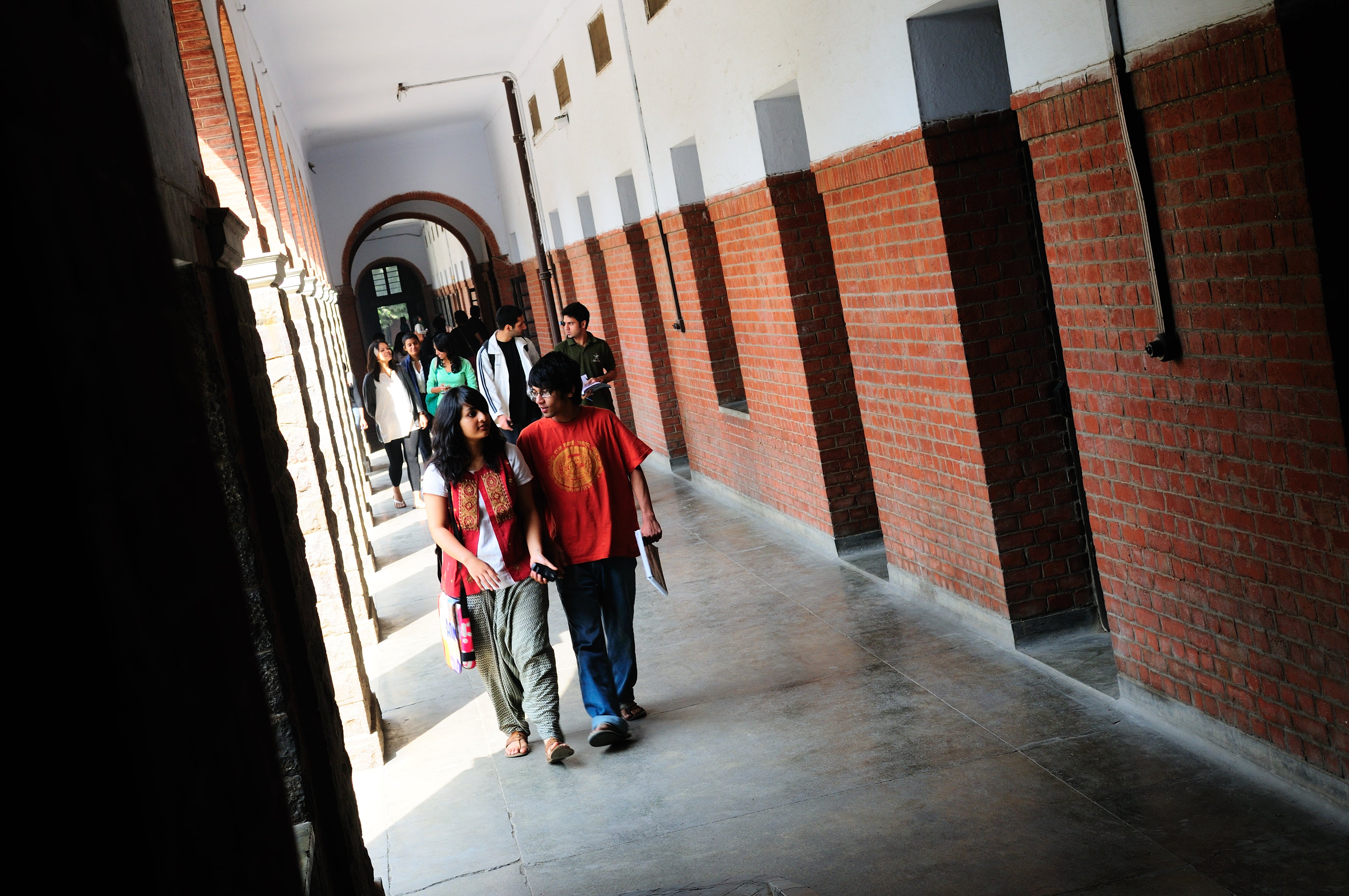Why India’s version of Cambridge University is up in arms over bible readings
Students at the elite St Stephen’s College were suspended for not attending a daily 9am morning assembly, dismissed by many as ‘boring’ and ‘pointless’. Arpan Rai reports on the clash between India’s bright young minds of tomorrow and an ‘old-school tradition’ harking back to the colonial era


With its shady cloisters, sprawling green campus and red-brick clocktower adorned with a cross, St Stephen’s College could fool a visitor into thinking they had stepped out of the dust and noise of India’s capital and into the grounds of Cambridge University.
In many ways, that’s the point – St Stephen’s, a part of Delhi University, was founded by Cambridge missionaries in the 19th century and modelled after their own colleges, with the facade of its main building today bearing a strong resemblance to the grand entrance of Cambridge University Library.
It remains one of the country’s most elite educational establishments, with alumni including the current chief justice of India, DY Chandrachud; both Narendra Modi’s foreign minister Subrahmanyam Jaishankar and the opposition leader Rahul Gandhi; and the late Diageo chief executive Ivan Menezes.
Despite the outsize importance of the college in shaping the minds of some of modern-day India’s leading figures, the current crop of St Stephen’s students are still expected to follow practices rooted in its colonial heritage, leading to an uproar this week when 100 of them were suspended for not attending morning assemblies.
The 9am assembly begins with a reading, often from the Bible but sometimes from another religious text, such as the Bhagavad Gita – one of Hinduism’s holiest scriptures – which is then followed by a short lecture given by either the college principal John Varghese or a guest speaker.
Attendance is mandatory, but students who spoke to The Independent said the majority have come to view the assemblies as “pointless” or “boring” and instead prefer to sleep in before their first lectures at 9.30am. They are, after all, students aged 18 and above – not schoolchildren.

The email from Varghese’s office, which also copied in the parents of the 100 students being suspended, noted that previous disciplinary action over assembly attendance had been ignored. “Regrettably, due to non-compliance with this request, I inform you that the student will not be permitted to sit for the upcoming examinations [for the term] as a consequence of suspension.”
Missing the exams is a big deal, requiring students to repeat those modules the following year. The resulting backlash came not just from outraged students but also from sympathetic members of the teaching faculty, who went as far as to suggest that forcing students to attend a partly religious exercise was in breach of India’s secular constitution.
“Apart from illegality, making the students listen to religious scriptures against their will and forcing them to pray, possibly against their beliefs regarding religion, is unethical and contrary to the liberal ethos of any institution of higher learning,” Sanjeev Grewal, head of the college’s economics department, wrote in an email to the principal, seen by The Independent.
“Students have a fundamental right guaranteed by our constitution to not take part in any activity that involves religious instruction or worship conducted in any recognised educational institution or an educational institution receiving financial aid from the government if they don’t give their free consent to it,” the professor said.
Most of the students who spoke to The Independent gave more prosaic reasons for failing to attend assembly. “The college corridors have unofficial jokes floating around on how this is basically a school and not a college,” said one first-year student who was subject to the suspension notice. They asked not to be named, fearing repercussions from the college.
“It’s plain pointless, and the general perception of morning assembly is it’s not too bad, but the suspension over not attending is definitely arbitrary.”
A second-year English student, also speaking on condition of anonymity for fear of punitive action, said it was time the college moved into the 21st century and ditched the “boring” assemblies. “The principal is clearly going on about a random old-school tradition of his. We understand traditions, but they need to be reinvented,” they said.
“It’s a disciplinary technique not needed in college. When we were in first year, we realised it was an unnecessary pedagogical construct, so we ended up skipping it as soon as we reached the second year,” they added.
Professors on campus are well aware of the staid reputation the morning assemblies carry, and criticised the apparent attempt to increase attendance through a harsh directive rather than by trying to increase their appeal.
“Such an arbitrary move is not only an overreaching imposition and shocking, but also funny. We know first-year students are right out of high school, they stand up when they greet us in the first few months and take every tradition seriously,” NP Ashley, assistant professor of English at St Stephen’s, told The Independent.
“Later, they realise things like morning assembly are not cool any more!” he said.
After three days of outrage on campus from students and professors, late last Tuesday the principal finally rolled back the suspension order, claiming it had been a “miscommunication” from his office and had not come from him personally.
“It was a miscommunication, incorrectly worded and my sincere apologies for that. I was also not copied on that email, a practice which is normally followed when I instruct my office to communicate, in written mode, on my behalf. Let me therefore set right the matter through this email,” Varghese said in an email seen by The Independent.
The principal nonetheless continued to defend the morning assemblies in his follow-up email and sought to rebut the objections that had arisen in the days prior. “Any former student will vouch for the fact that the morning assembly in college is not a religious exercise,” he argued.
“Every college has its unique set of practices and traditions, and St Stephen’s College is no different. The morning assembly in college is an old tradition of the college. It is NOT a religious event even though small portions from several religious and philosophical texts are read out,” he wrote in the email.
He added: “It is more an occasion when the junior members of the college are encouraged to listen to men and women of character, experienced people who share their wisdom and knowledge for the betterment of the young people in college.”
The Independent reached out to the principal for comment but has yet to receive a response.
On Wednesday, in the first morning assembly after the suspension order was revoked, no religious scriptures were involved. Instead, the principal gave a reading of Rudyard Kipling’s poem “If”.






Join our commenting forum
Join thought-provoking conversations, follow other Independent readers and see their replies
Comments